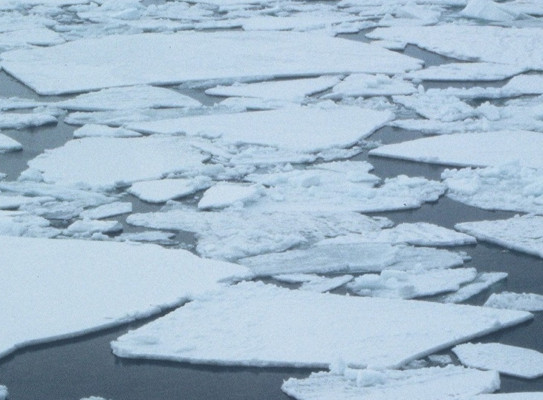
Carbon cycle feedbacks in the Antarctic

Interactions between Antarctic sea ice, carbon dioxide and climate are critical to understanding present-day trends and future long-term changes in a rapidly warming world.
Overview
The Southern Ocean absorbs more anthropogenic (caused by humans) carbon than any other ocean on Earth, comprising ~40% of the global ocean sink for anthropogenic carbon.
The carbon cycle is closely linked to sea ice through its influence on air-sea gas exchange in the Southern Ocean. Sea ice around Antarctica has expanded markedly since satellite records began in 1979, a puzzling trend in a warming world. In 2015, that trend reversed – and we don’t know why.
Understanding these processes is key to determining the future of the Southern Ocean carbon sink and the time that we have left to avoid catastrophic warming.
This project aims to
- Identify changes in Southern Ocean CO2 uptake and what this might mean in a warmer world
To achieve this aim, our objective is to
- Measure absorption and release of CO2
The project
Carbon cycle feedbacks
This is one of two projects GNS Science is co-leading as part of the Antarctic Science Platform.
We are working on objective two, Interannual variability of CO2 uptake in the Southern Ocean and long-term trends in the carbon cycle. In simpler terms, we’re investigating the impact of climate change on biological productivity and carbon dioxide uptake in the Southern Ocean.
That ocean currently acts as a “carbon sink”, taking up a large portion of the carbon dioxide emitted into the air from human activity. We need to know if the carbon sink is changing size and whether it will continue to be a sink. This requires more year-round observations to build a fuller picture. We are collecting flasks of air along a ship transect from New Zealand to the Ross Sea and measuring them for CO2 content and other trace gases to better understand how the sink changes through time and space.

Research programme details
Duration
2019–2025
Funding platform
Status
Current
Programme leader
Funder
Ministry of Business, Innovation and Employment (MBIE)